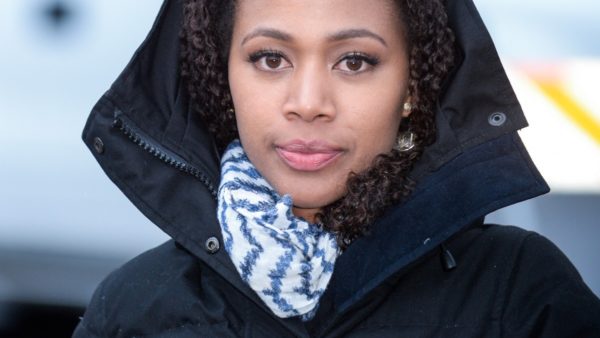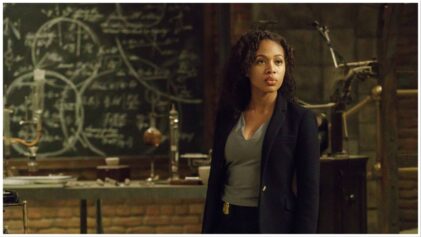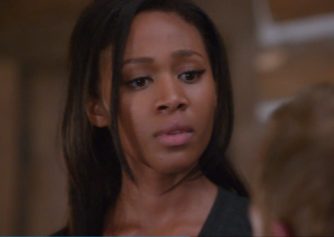When Nicole Beharie‘s character Abbie Mills was killed off in season three of Fox’s “Sleepy Hollow” in 2016, she had difficulty finding work afterward.
It isn’t every day that a Black female lead is seen on a show that delves into the supernatural, so Beharie’s presence was a rarity. After her character was killed off, fans of “Sleepy Hollow” called for it to be canceled, and the hashtag “#AbbieDeservesBetter” surfaced online. The show was canceled one season later.

“What happened on ‘Sleepy Hollow’ is really interesting,” Beharie told the Los Angeles Times. “We had a lot of things happen that paralleled the conversations that are happening in this moment.”
In 2019, Beharie shared that she’d left the show because of an autoimmune condition, which made it a challenge for her to shoot at times when working on the show. In an interview with People, she shared that she and her co-star were sick at the same time. But, she added, she and then co-star Tom Mison, a white man who played Ichabod Crane, were treated differently.
“My costar and I were both sick at the same time, but I don’t believe that we were treated equally,” she added. “He was allowed to go back to England for a month [to recover while] I was given Episode 9 to shoot on my own. So I pushed through it and then by the end of that episode I was in urgent care. And all the doctors, including the doctors that the studio was sending, were all confirming, ‘Hey, she can’t work right now.’ ”
Beharie, 35, said because she tried to pay attention to her health, including requesting through a lawyer fewer work hours, she was labeled difficult and was somewhat ostracized in Hollywood. But she doesn’t blame an individual or “Sleepy Hollow” executives; she now recognizes, she said, it boils down to structures that are in place.
“There’s a lot of pressure in a situation like that where so many people are relying on you alone to get up and get going,” she explained. “I feel like it’s taken me the last few years to really see clearly that it wasn’t personal, it’s about the way that these structures are set up. It was very difficult to talk about at the time because I wanted to get back to work. But I was labeled as problematic and blacklisted by some people.”
Other Black actresses have spoken out about the unfair treatment they received on-set compared to others. Some have brought these first-hand accounts to the spotlight during a time that many are protesting for racial equality following the death of George Floyd.
Samantha Marie Ware is one such talent. Earlier this month, she said while playing on “Glee,” the star of the show Lea Michele treated her terribly and it went unchecked.
Speaking out doesn’t come easily, Beharie explained during the Los Angeles Times interview.
“The consequences of making a mistake or causing a ripple in the water are greater,” she explained. “And ultimately, nobody wants to be [considered] trouble. So those situations hold you back and you keep quiet, not wanting to upset anyone or ask too many questions. But I feel like I, and the world as a whole, are in a different place now and I’m happy about that.”
Beharie, whose also in much better health today, now is starring in the film “Miss Juneteenth,” her first major role since “Sleepy Hollow.” The film premiered on Friday, June 19 on streaming, Video on Demand, and in select theaters.


